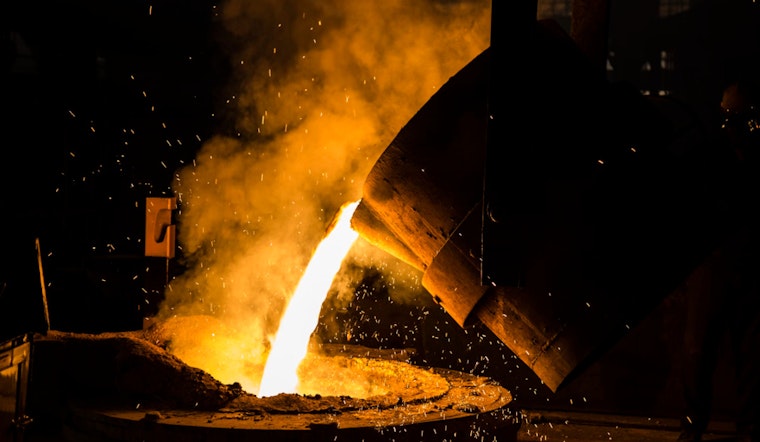
In a bold move to tackle the significant emissions from steel production, Boston Metal, an MIT spinoff, is revolutionizing the industry with its electrochemical process known as molten oxide electrolysis (MOE). With an established prototype reactor in Woburn, Massachusetts and a Brazilian subsidiary actively deploying the technology, Boston Metal is on track to truly transform the way metals are made. According to a report by MIT News, the company's innovative method not only streamlines the steel-making process but boasts oxygen as its only byproduct, positioning it as a greener alternative to traditional methods.
The steel industry currently shoulders the blame for an estimated 7 to 9 percent of global greenhouse gas emissions. In efforts to dramatically to reduce the carbon footprint, Boston Metal's MOE technology eliminates the need for coal, instead using electricity to cleanly produce steel. The process involves heating iron ore to around 1,600 degrees Celsius in an MOE cell, until the iron oxide bonds break and pure liquid metal is produced. Guillaume Lambotte, Boston Metal Chief Scientist and a former MIT postdoc, emphasized in statements obtained by MIT News, "There's a worldwide recognition that we need to act rapidly, and that's going to happen through technology solutions like this that can help us move away from incumbent technologies."
Originating from NASA-funded research aimed at producing oxygen on the moon, the technology beautifully adapted to Earth's industrial needs. This breakthrough is licensed from MIT's Technology Licensing Office, with funding exceeding $370 million from global organizations to boost its commercialization efforts. Each MOE cell can churn out up to 10 tons of metal daily, offering steelmakers the flexibility to license and deploy as many units as necessary to meet their production goals. Boston Metal is not only limited to steel, as the company is set to begin negotiations for a grant to produce chromium in West Virginia, a metal crucial for clean energy applications.
Boston Metal's commitment to steel decarbonization is evidenced by their Brazilian plant, which operates exclusively on renewable energy. Lambotte states that the widespread urge to decarbonize energy directly benefits this new approach. "We can be the beneficiary of this tremendous worldwide push to decarbonize the energy sector," he told MIT News. "I think our approach goes hand in hand with that. Fully green steel requires green electricity, and I think what you'll see is deployment of this technology where [clean electricity] is already readily available."
With the global steel industry under pressure to meet decarbonization targets, MOE offers a viable solution ripe for adoption. On the horizon for commercial-scale launch in 2026, Boston Metal is focused on reducing the industry's footprint—one MOE cell at a time. "Steel produces around 10 percent of global emissions, so that is our north star," Lambotte said in statements to MIT News. As the world grapples with climate change, Boston Metal's MOE may just be the technology the steel industry needs to forge a greener future.









